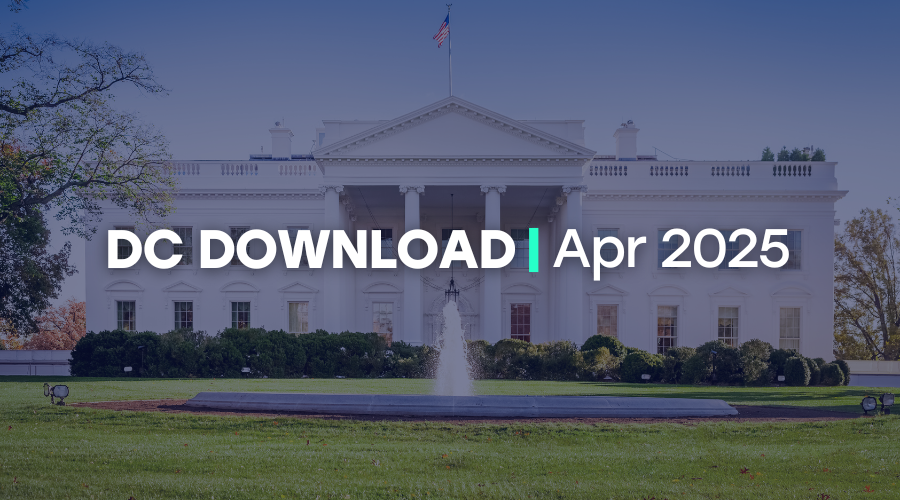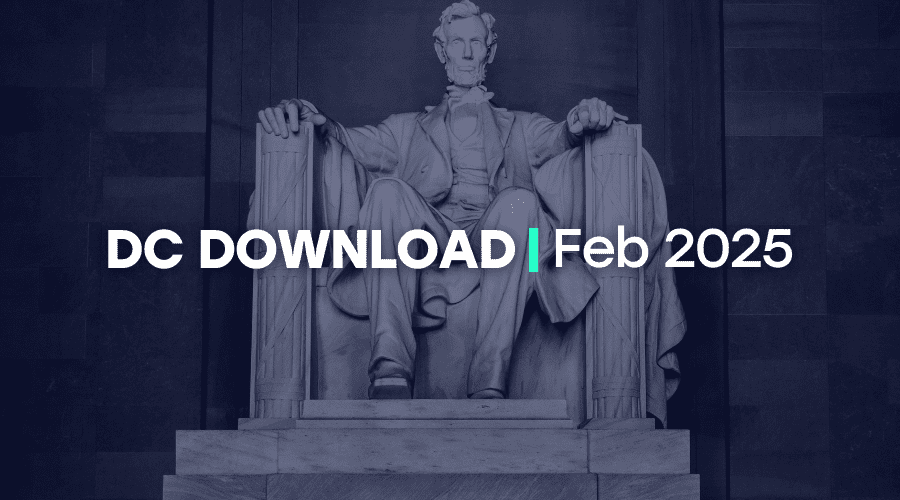As Capitol Hill buzzes with reconciliation debates and policy markups, another kind of spectacle unfolds across the Atlantic: Eurovision. On the surface, a glitzy international song contest might seem worlds apart from the halls of Congress or the day-to-day work of charitable organizations — but dig a little deeper, and you’ll find surprising common ground. Whether it’s whipping votes, building coalitions, or delivering a message that resonates across borders and demographics, Eurovision, lawmakers, and the charitable sector all thrive on the power of storytelling, strategy, and a little bit of showmanship.
Reconciliation Bill Moves Forward Without Dangerous Provision, Adds Modest Giving Incentive
On May 22, the House of Representatives passed the reconciliation bill, which includes several provisions with significant implications for the charitable sector. One key element we were pleased to see included is the restoration of the nonitemizer charitable deduction, which would allow individuals who do not itemize their taxes to deduct donations up to $150 — or $300 for couples. This is a step in the right direction to encourage broader giving, especially from lower- and middle-income donors. That said, Independent Sector believes these amounts are too low to fully incentivize charitable giving and will be working with our partners in the Senate to advocate for a higher cap.
However, the bill also raised serious concerns during its drafting process. Notably, the original version included deeply troubling language that would have granted the Secretary of the Treasury unilateral power to suspend the tax-exempt status of any organization they believe to be supporting terrorism. The affected organization would then be given just 90 days to prove its innocence. We strongly opposed this language when it was voted on in the House last year as H.R. 9495, and we remain firmly opposed today.
Such a proposal runs counter to the foundational principles of due process and the presumption of innocence guaranteed by the Fifth Amendment. It gives too much unchecked power to a single official and creates an environment ripe for abuse and political retaliation. Thankfully, after strong and sustained advocacy by Independent Sector and our nonprofit coalition allies, this provision was removed from the final version of the bill that passed the House.
Still, the fight is not over. As the reconciliation bill moves to the Senate, we will remain vigilant to ensure this language is not added back in. We are committed to protecting both the integrity and the independence of the charitable sector and will continue to advocate for a fairer, more effective approach to policy impacting our sector.
Protecting Process Over Politics in the Harvard Tax-Exempt Dispute
Earlier this month, the Trump-Vance Administration announced its intent to revoke Harvard University’s tax-exempt status, a move that appears to be the latest escalation in an ongoing feud between the president and the university. The announcement followed a list of demands reportedly issued by the White House, which included the dismantling of Harvard’s diversity, equity, and inclusion (DEI) programs. In response, the university issued a public statement rejecting the administration’s demands, affirming that it “will not surrender its independence or relinquish its constitutional rights.”
The same day the president made the announcement via social media, a group of U.S. Senators — Chuck Schumer (D-NY), Ron Wyden (D-OR), Elizabeth Warren (D-MA), and Ed Markey (D-MA) — sent a letter to Acting Inspector General Heather Hill requesting an investigation into the IRS’s involvement in the matter. The senators called the president’s actions both illegal and unconstitutional. Last week, during a Senate confirmation hearing, IRS Commissioner nominee Billy Long declined to answer a direct question about whether a president can order the IRS to revoke a nonprofit or educational institution’s tax-exempt status.
At Independent Sector, we have serious concerns about the precedent this could set if it’s allowed to move forward unchecked. Tax-exempt status is a crucial designation that allows nonprofit and educational institutions to operate in service of the public good, and there are clearly established legal processes for reviewing and revoking such status when warranted. These processes are designed to prevent misuse and to uphold fairness and impartiality — principles that are undermined when the power to grant or revoke tax exemptions is politicized or used as a tool of retribution.
Regardless of one’s view of Harvard University or any specific policy, allowing tax policy to become a weapon of political influence threatens the independence of all nonprofit institutions, including those that serve marginalized communities, advocate for civil rights, or engage in unpopular speech. We urge Congress and the IRS to safeguard the integrity of these institutions by ensuring that all decisions regarding tax-exempt status are grounded in law, not political pressure.
House Committee Advances Retirement Fairness for Charities Act
On May 20, the House Financial Service Committee advanced the Retirement Fairness for Charities Act (H.R. 1013), led by Reps. Frank Lucas (R-OK), Josh Gottheimer (D-NJ), Bill Foster (D-IL), and Andy Barr (R-KY). This bipartisan legislation would give 403(b) retirement plans—a retirement plan commonly used by nonprofits and government entities—the ability to invest in collective investment trusts (CITs), a flexible and lower-cost investment option already available to other retirement plans. By aligning 403(b) plans with their 401(k) counterparts, the bill aims to level the playing field for the millions of Americans who dedicate their careers to charitable causes, education, health care, and civil service.
While advancing out of committee is a crucial step, H.R. 1013 must still pass the full House, move through the Senate, and be signed by the president before becoming law. Independent Sector strongly supports this legislation and the financial security it would help provide for nonprofit and public sector workers. We will continue to track its progress and advocate for policies that support equitable retirement options for those who serve the public good.
Keeping PSLF Focused on Service, Not Politics
Last week, Senator Jim Banks (R-IN) introduced the No Loan Forgiveness for Terrorists Act (S. 1845), a bill that would change how eligibility for the Public Service Loan Forgiveness (PSLF) program is determined. The legislation seeks to codify a recent executive order and would bar student loan borrowers from receiving PSLF credit if they work at nonprofit organizations engaged in certain activities, including providing support to undocumented individuals or offering gender-affirming care.
Since its bipartisan creation in 2007, PSLF has operated on a clear and consistent standard: Full-time employment at a 501(c)(3) nonprofit qualifies a borrower for forgiveness after 10 years of service and on-time payments. Introducing exclusions based on an organization’s mission or perceived political alignment risks undermining the clarity and neutrality that the program was designed to uphold. If an organization violates the law, existing mechanisms already allow for its tax-exempt status to be revoked — removing PSLF eligibility for its employees. Changes like those proposed in S. 1845 could create confusion and politicize a program that should remain focused on encouraging public service across sectors.
Act Now: Safeguard Nonprofits in the Federal Budget Process
As Congress advances budget reconciliation legislation, it’s critical that the voices of nonprofits are heard loud and clear. A national letter is being circulated by Independent Sector, Council on Foundations, National Council of Nonprofits, and United Philanthropy Forum to urge Congress not to treat the charitable sector as a source of revenue to advance unrelated policy priorities. The letter states plainly, “The nonprofit sector must not be used as a revenue source to pay for other unrelated policies.” We know the vital role our organizations play in strengthening communities — and now we must come together to protect that role.
If your organization hasn’t yet signed on, please do so as soon as possible. While there’s no final deadline yet, signatures are strongly encouraged by May 30. We also urge you to share this widely in your networks — especially with nonprofit leaders, coalitions, and partners who understand what’s at stake. Let’s make sure our legislators hear us loud and clear: Nonprofits are essential, not expendable.
Travis Swanson is the Government Relations Manager at Independent Sector



